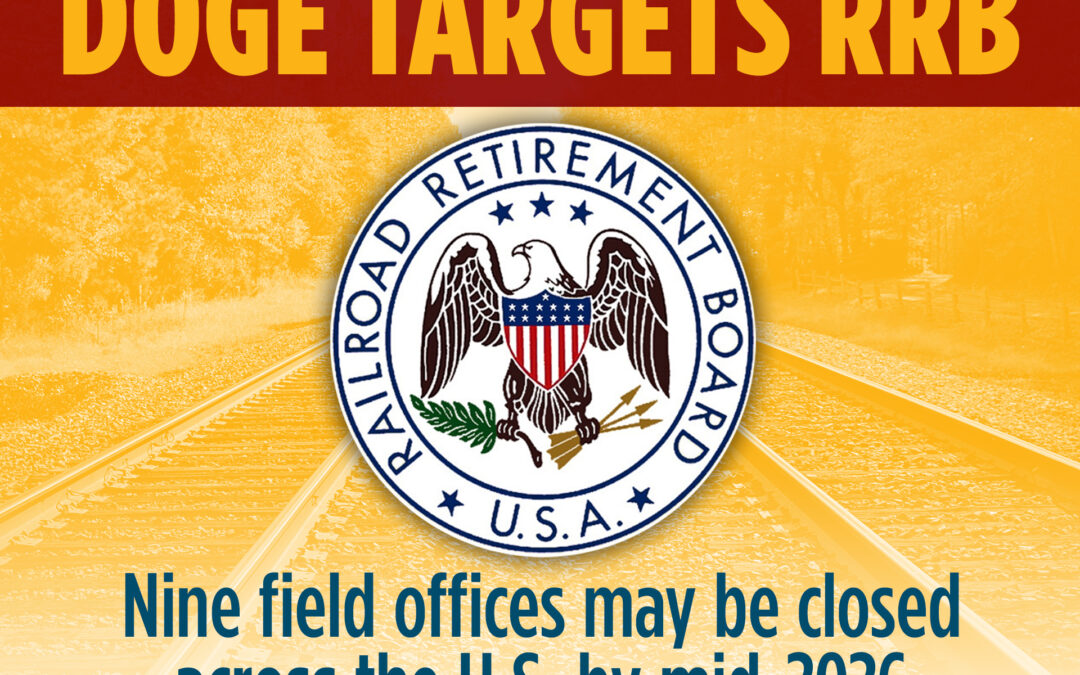The BLET National Division has been approached by many concerned members regarding the Trump administration’s ongoing cuts to federal agencies with questions about what effect those reductions in staffing and programs might have on railroad workers. Among the cuts, it appears that nine Railroad Retirement Board (RRB) field officers may soon be closed by actions initiated by Trump advisor, billionaire Elon Musk, and the so-called Department of Government Efficiency, or DOGE.
Unless it is reversed, a Trump executive order to terminate government office leases in private spaces will result in the closure of nine brick and mortar RRB field offices: Mesa, Ariz. (June 30, 2025); Joliet, Ill. (June 30, 2025); Wichita, Kan. (June 30, 2025); Covina, Calif. (August 31, 2025); Scranton, Pa. (August 31, 2025); Jacksonville, Fla. (December 31, 2025); Cincinnati, Ohio (December 31, 2025) St. Paul, Minn. (January 31, 2026); and Altoona, Pa. (July 24, 2026). According to a local FOX News report, closing the field office in Cincinnati would result in zero savings to the federal government.
Prior to Donald Trump taking office on January 20, the RRB was already dealing with a severe staffing shortage due to chronic underfunding. This caused the agency’s customer service performance to struggle. The average wait time for adjudication of RRB occupational disability claims is currently 450 days. The average phone hold time is a shocking four hours. Adding to its challenges, RRB now faces a Trump-imposed hiring freeze combined with the loss of roughly 200 employees linked to the Trump/Musk “fork in the road” resignation offer. The Fork in the Road program was designed to cut the federal workforce through buyouts and an early retirement program, driven by fear of mass firing. It is anticipated that these field office closures, coupled with job cuts to an already understaffed agency, will lead to significantly longer wait times.
Members must submit paperwork in person at a RRB field office in order to claim retirement benefits. Closure of field offices is a costly proposition for railroaders and their family members who will find it necessary to travel at their own expense much longer distances and often out-of-state when it comes time to retire.
The BLET and the Teamsters Rail Conference are working with the RRB to determine the continued best course of action in an attempt to keep these field offices open. As part of that effort, the union has approached the White House to explain the negative impact that office closures would have on rail workers and their families.
This is a developing story and updates will be provided as warranted.

